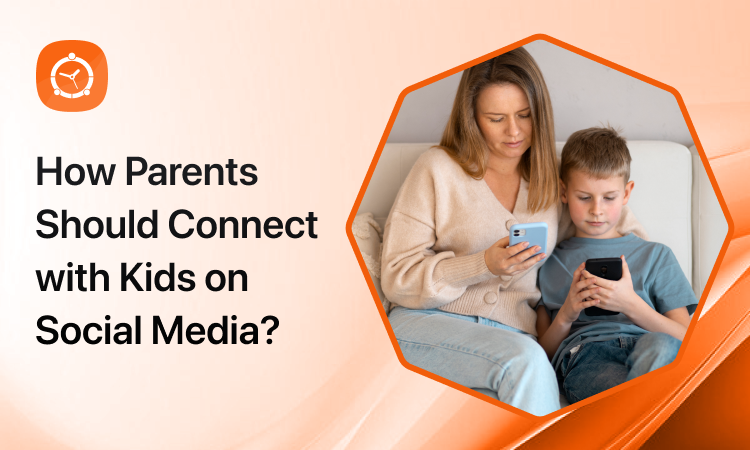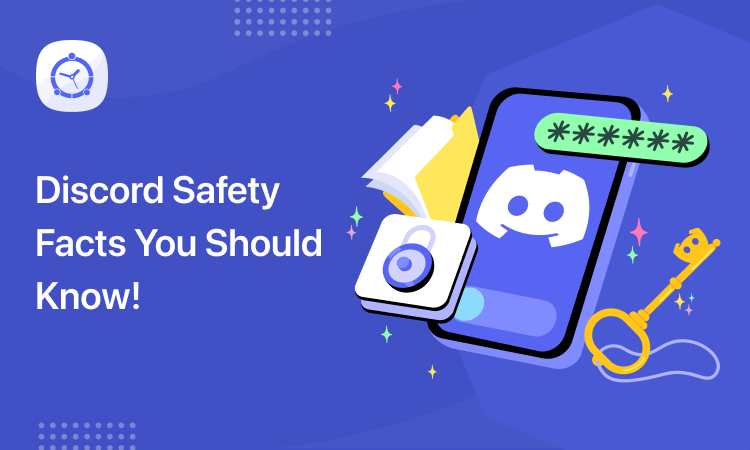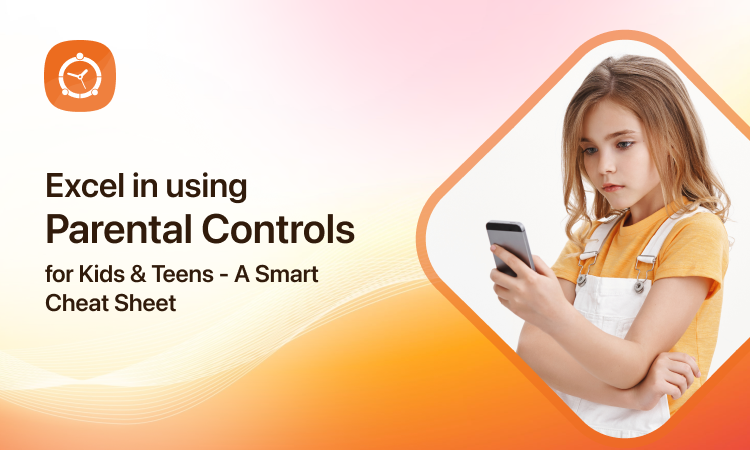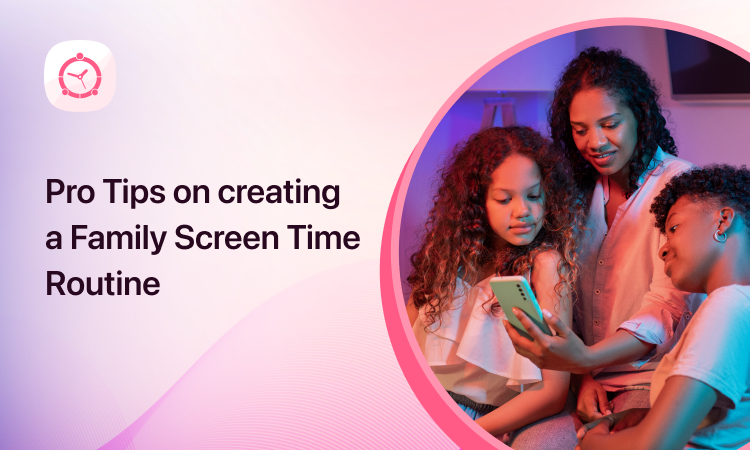Social media is like a lifeline for kids these days. They prefer to connect with others using digital mediums. It’s the reason their lives are more interesting online instead of offline relationships. So, as parents, you need to connect with kids on social media.
Connecting with Your Kids on Social Media
Connecting with kids in their digital space is essential for their safety and well-being. Without letting them be bothered by your presence or will to get involved with them. Here are a few ways to connect with them smartly.
Be on Their Friend List
The best way to connect with your kids on social media is to be on their friends or follow list. Being in the news feed will help you get the latest updates about their online activities, shares, and interactions. You do not have to spy or bug into their feeds and look at the phone for such information. It’s better to be added by them to the friend list from your original name. Do not try to conceal your personality under a fake name to be connected with the kids. as if they find out about it, they will lose trust in you.
Follow Their Content Shares
The best way to find what your child thinks and is interested is by looking into the content they watch or share. Doing so will help you know about their interests and preferences. It helps you know the pages or groups they like so you can dig deep into their digital lives.
Join Social Media Channels
Connecting your kids on a specific social platform is not enough. Kids these days are using multiple social platforms and apps. It’s better to be connected and present on all social platforms or at least know about them. If you cannot do all the apps, you can still connect with the most frequently used and hyped-up social platforms. Most importantly, Snapchat, Instagram, WhatsApp, TikTok, and other similar ones. It helps you get to know about them better.
Have Trendy Conversations
Make kids feel connected with you by communicating the trends with them. Learn their language, slang, and the stuff they are most interested in. Discuss things with them so they can relate with you and prefer to share their first thought on everything with you.
It’s better to keep yourself up to date with the latest trends and share them with your kids. It will encourage them to discuss similar things with you and feel comfortable sharing their ideas.
Things Parents Should Avoid to Make Kids Uncomfortable
Connecting with your kids by joining all the social platforms they are active on is a good way to keep kids safe. However, sometimes, parents can go overboard and beyond the safe limits of monitoring their kids. There are a few acts that disturb kids and make them uncomfortable. Here are a few things you should avoid.
Bringing Personal Stuff Online
Remember, your offline life is private, and nothing is worth sharing online. Some kids do not even like to share everything online. They prefer to keep a few things private, so you should respect their privacy, too. Ensure you are not bringing their stuff online, not even as a prank.
Being Over Protective
Parents are protective of kids, and it’s normal. You do not want anyone to hurt or say bad things about them, but you cannot always stand up for them. Let them handle the hot waters themselves at times. It helps them deal with critical life situations and issues that arise online. You can guide them privately when dealing with people online to provide support.
Too Much Involved in Their Social Media Profile Activities
Your purpose in connecting with kids on social media is to be aware of what they are doing online, but getting too involved is wrong. Frequently checking their profiles, stories, and activities and reacting to and commenting on them will irritate the kids. It might become a source of embarrassment for them in front of their friends.
OverSharing Random Posts That Annoy Them
It’s fun for Gen Z to share pictures, reels, and memes. But. They mostly expect the activity from their friends. Being parents, you can share the posts with them, but not frequently. Also, avoid sharing posts that constantly bug them for certain actions or behaviors. Avoid content that may be hard-hitting on kids and does not align with their psychology.
Overwhelm Them with Your Online Presence
You are on social media with your kids, but making them realize this more frequently is unnecessary. Let them have breathing space. It’s not necessary to share posts or comment on their posts more frequently. Never mark them as your territory online. Keep a balance in your connection with kids online so they can express themselves better and feel comfortable.
Constant Counseling on Their Acts Online
Kids may share or say a few things that are not appropriate more often. It can be because of their peer pressure or impulsive thinking. In such a situation, do not always counsel them for the small acts. It can irritate them and make them want to escape you or block or hide a few posts.
Instead, they should be taught the best social media practices and encouraged to be more responsible. Provide them support and guidance occasionally and help them improve practically. Do not irritate them at all.
Monitor Your Child on Social Media with FamilyTime
By getting into your child’s friend list or snap streaks, you can only see what they want you to see. Still, their chats are a secret that can potentially contain something dangerous. So, what’s the way out?
You have the best parental control app, FamilyTime, to help you. The app contains unlimited monitoring and controlling features to ensure your child’s digital well-being.
Social Media Monitoring
When you are concerned about your child’s social media chats, FamilyTime lets you access them. Using the monitoring feature, you can look into their private chats on multiple social media platforms like Facebook, Instagram, BiP, Twitch, TikTok, WhatsApp, and more. The access lets you review the chats and filter their chats. It helps create a safer digital experience for kids.
App Usage Reports
Another concern that parents have is about the time their kid spends on social media. With the app usage reports, FamilyTime helps you know your child’s average time on social media. Moreover, there is a summary of time spent on the individual app so you can evaluate what your child prefers to do with the device. Using this information, you can set up the App limits and ensure your child is not using social media apps excessively.
App Approvals
With every passing day, new social media apps are coming on board. It seems difficult for you to track your kids on all the platforms single-handedly. So, what about getting the updates when your child is about to install a new app, and you can review it for approval? You can use the app approval settings by FamilyTime easily. You will get a notification when the kid is about to install a new app. Review the app and decide to approve or reject it.
The feature helps you maintain control over your child’s digital activities seamlessly. Since FamilyTime comes with uninstall proofing, kids cannot uninstall the app and settings.
App & Web blocker
Save the kids from accessing unwanted apps and websites using the blocker. Blocking these apps and websites using the FamilyTime controls is simple, and you are at ease. The child cannot access blocked apps or websites on devices.
Contacts Watchlist
For cyber predators, it does not take too long to slide into your child’s phone list from social media. The exchange of phone numbers is pretty common. So, you also need to keep an eye on your child’s call logs and contact lists.
Watchlist the numbers you find suspicious of your child and put them on alert. You will get alerts about any calls or messages from these contacts so you can monitor them. It helps keep your child’s communication secure and guides you when necessary.
SMS Monitoring
Along with the social media chats, the texts are another concern. Teens these days are more into messages than calls. So, you can also check out their text messages using the monitoring feature, which helps you know if they are facing any harassment, bullying, or behaving right with others.
Wrap Up!
Stopping kids from using social media platforms is not justified. Instead, you can let them use it in moderation and follow safer digital practices. Guide and monitor them online by connecting with them on social media. Let them know you have an eye on them so they will keep their conduct managed online. Even when connecting with them online, ensure you are not bugging them too much, which will eventually irritate them and cause conflicts.








